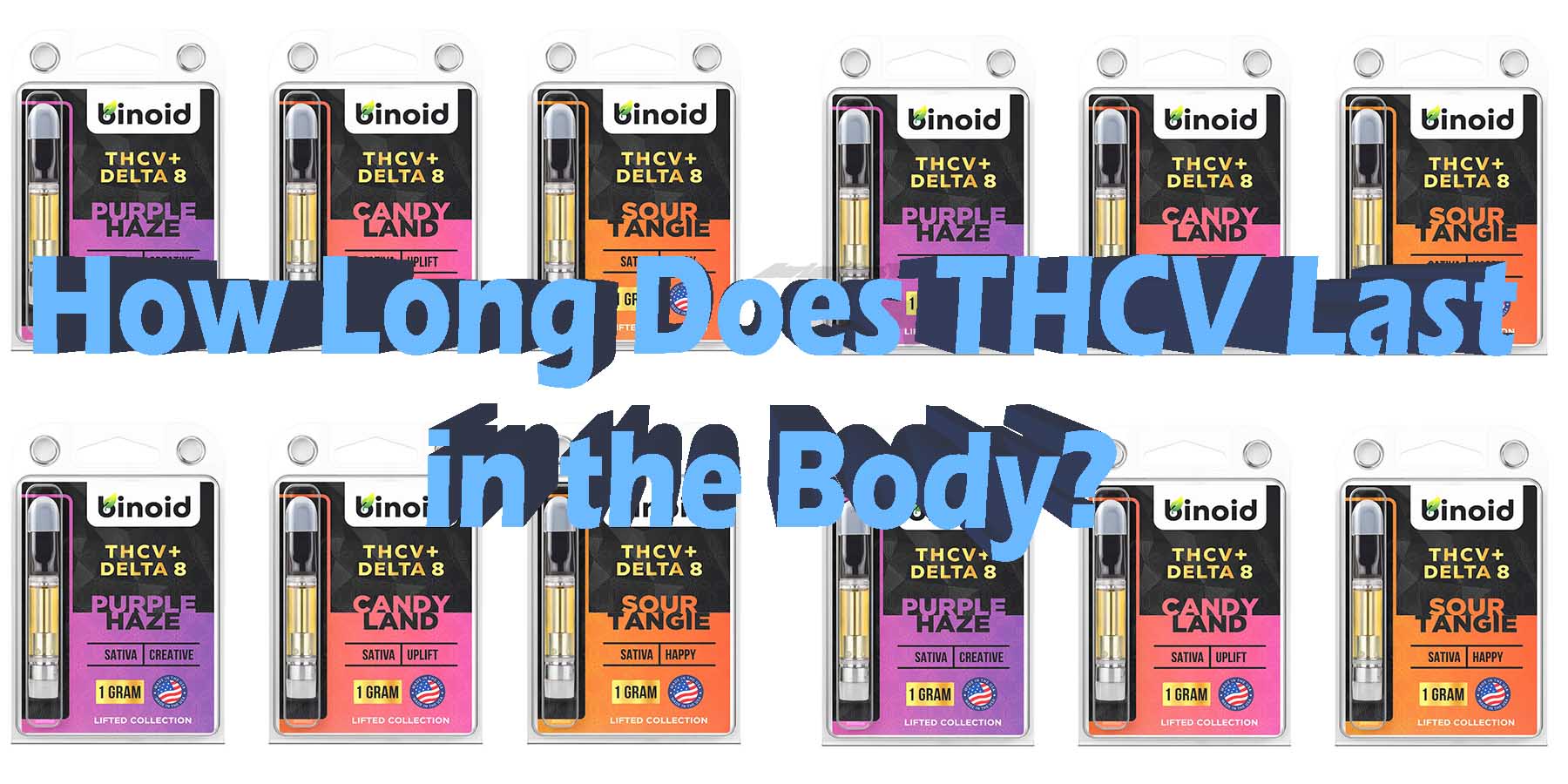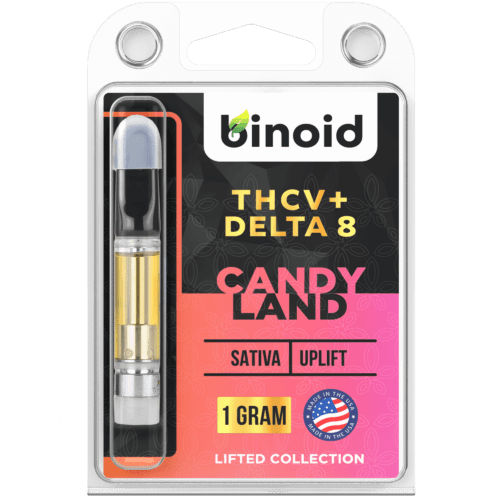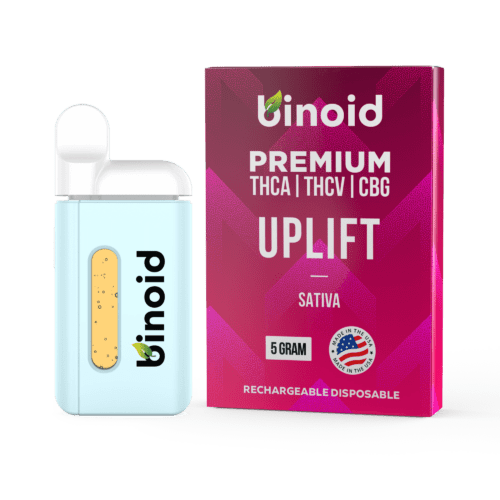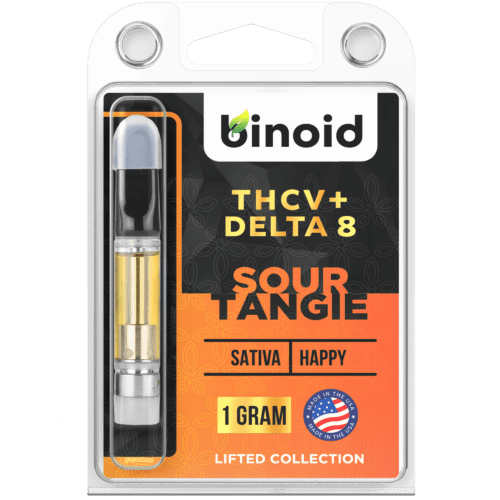
How Long Does THCV Last in the Body?
For those who may not be aware, THCV is a completely unique cannabinoid that could be closely related to delta 9 THC, but still produces an entirely different experience and series of effects. This mild psychoactive is becoming extremely popular, both for its intoxicating and non-intoxicating properties, and is more widely available than before, meaning that a lot of people are exploring it for themselves in forms such as gummies, vapes, and tinctures.
THCV is certainly a promising addition to an already exciting hemp market, but it’s important to many to have a good understanding of how long the cannabinoid can actually linger in the system – especially if you’re someone who gets drug-tested by an employer, probation officer, etc.
TO BUY THCV PRODUCTS CLICK HERE
-
Product on sale
 Functional THC Gummies$33.99
Functional THC Gummies$33.99$59.99
How Long Do the Effects of THCV Typically Last in Our System for?
Before we really dive into how long it takes for THCV to fully leave our body, first we need to cover how long the effects can be felt before they wear off. Be aware that after you no longer feel the effects of THCV in action, it’s still getting broken down by enzymes in the body so that it may be completely eliminated, primarily through the urine. This means that THCV will linger in the body even after you no longer actively feel its properties.
Tetrahydrocannabivarin (THCV) is a natural cannabinoid in the hemp plant that is mildly psychoactive. Its high is extremely dose-dependent, as small doses of the cannabinoid aren’t going to cause any kind of psychoactive effects. Unfortunately, little is known about how this one variable may influence how THCV’s metabolized in the body.
Also is worth pointing out, the high is reported to last for about half as long as other THC compounds. How long that is depends mainly on the delivery method of the product, since how it absorbs into the body influences how its effects play out. Other aspects to consider include the user’s tolerance, and, like we said, the dosage amount.
- Inhalable Products (Vapes, Dabs, Flower): Any product that involves inhaling THCV, such as a vaping product, dabs (concentrates) and flower, is going to absorb the fastest into the body, and because of that, last for the shortest duration of time. Usually, people report feeling THCV for about 30 to 60 minutes.
- Ingestible Products (Edibles, Capsules): Ingesting THCV is going to cause the slowest absorption rate, whether done through the consumption of a gummy, a capsule, or even a beverage. Generally, people report feeling the effects for about 3 to 4 hours.
- Sublingual Products (Tinctures): If you’re taking a THCV tincture, the cannabinoid is going to absorb at a rate that’s about halfway between inhalable and ingestible products, as it absorbs through the sublingual tissue below the tongue. This means the effects may last for about 2 to 3 hours, give or take.
Is There a Duration of Time When THCV is Supposed to Leave Our System?
Like we said, even after the effects of tetrahydrocannabivarin have worn off, you’re still going to have levels of the cannabinoid in the body that can be detected through various testing methods. This is the case of basically anything we consume due to our metabolic process. Think of medications that take a while to clear long after you’re benefiting from their effects. The same goes for THCV and all other cannabinoids.
But, how long does tetrahydrocannabivarin remain in the body?
Well, that can be anywhere from 2 to 30 days, give or take. Reason why this is such a big range is because of the fact that a number of things that influence the outcome, such as how much you last took, and how frequently you take the cannabinoid.
- Within about 30 minutes of feeling the effects of THCV, half of it has already fully metabolized.
- About 30 minutes later, another 25% is now broken down.
- The remaining 25% then undergoes a much slower metabolization process, during which it can linger in the body for a surprising length of time.
What This Means for Drug-Testing Purposes
Naturally, if tetrahydrocannabivarin is still in your body, there is a chance of failing a drug test. Drug tests are likely to pick up even a small amount of the cannabinoid that has not yet fully metabolized. There are different types of drug tests out there which can determine how likely it is that you’ll fail, based on when you’ve last taken the cannabinoid.
Method #1: Urine Tests: 90% of drug tests that are administered by employers and probation officers are urine tests, in which they’re looking for a metabolite called, “THC-COOH” which breaks down all THC compounds. A urine test can show evidence of usage weeks after the cannabinoid was last taken, and they’re also very accurate and inexpensive.
Method #2: Saliva Tests: A saliva test is only going to show whether or not you’ve used a THC compound within the last 10 hours. It’s usually administered by law enforcement, to determine whether or not someone is driving while intoxicated.
Method #3: Blood Tests: A blood test is only going to show whether or not a person is actively high on a substance. In order for a person to be intoxicated, the substance must be present in the blood. This type of testing is usually done in hospital settings.
Method #4: Hair Tests: A hair strand test is most commonly associated with autopsies, and it’s very, very expensive. It only shows if a person has used a substance about 3 months after they have last consumed it.
Method #5: Perspiration Tests: A perspiration test involves applying a patch to a person’s skin, where it’s left there for 2 weeks. A person may sweat out THC-COOH, and the patch would collect the sample. It’s usually used by clinical researchers since it’s both invasive and expensive.
-
Product on sale
 Super 7 Tincture – 7000mg$39.99
Super 7 Tincture – 7000mg$39.99$59.99
What Actually Plays a Role in How Long THCV Could Normally Last in the Body For?
If you’re concerned about tetrahydrocannabivarin remaining in the body because of an upcoming test, just know that there are a number of variables that can influence the outcome of a test result besides the type of test itself. Consider all of these things to determine the risk of failing a test.
#1: Frequency of Use
The more frequently you use THCV, the more likely it is that you’ll fail a test even after you think you’re in the clear. Heavy, daily users can still test positive in their urine for 6 weeks after they last consumed it, because the THCV has accumulated to such an extent that the metabolism can’t keep up.
#2: Delivery Method
The delivery method that you’re using can influence the duration of time needed for the THCV product to metabolize. Similarly, to what we discussed with the duration of the effects, edibles may take longer to metabolize than tinctures, and tinctures may take longer to metabolize than inhalable products.
#3: Product Strength
How strong your THCV doses are makes a difference, again because the more THCV accumulates in the body, the more time your metabolism needs to fully break it all down. Basically, taking higher strengths of THCV means a longer time during which you can test positive.
#4: Your Metabolism
Some people simply metabolize cannabinoids more quickly than others. Our metabolism works depending on the state of our health, based on everything from how much we exercise to our diet and even genetics. Some people are just going to take more time before THCV has fully metabolized.
#5: When You Last Took THCV
How long it’s been since you took THCV makes a difference. We mentioned that THCV can be detected for weeks after the last usage, depending on how much you take and how frequently you take it. If you’ve only used it once, in a small amount, you may be clear in just a couple of days.
#6: Product Quality
If your THCV product is made using poor-quality methods, it might be less potent than you think due to things like age and poor extraction techniques. As a result, this means that the THCV needs less time to fully metabolize.
How Long After Using THCV is it Safe to Take Any Type of Medication (Prescription or Non-Prescription)?
Yes, it is most certainly important to consider the potential interaction between tetrahydrocannabivarin and a medication that you’re on. Cannabinoids can lower levels CYP3A4 enzyme levels that break down many common medications we take. If THCV is suppressing CYP3A4, then each dose of a medication can accumulate in the body rather than metabolizing, and this can become dangerous.
Surprisingly, not a lot of research has been done on this potential interaction. And, each cannabinoid affects CYP3A4 differently, while each medication requires its own amount of CYP3A4 to metabolize. This means that it’s best to talk to your doctor if you are on a medication and want to try THCV.
The Bottom Line: THC Can Last Up To 30 Days In Your System
At the end of the day, nobody can provide an exact answer on how long it can take for tetrahydrocannabivarin to exit our system. And, there has yet to be a proven method for making THCV metabolize more quickly, such as taking a specific type of supplement. Basically, if you’re gonna be drug-tested sometime in the near future, you might consider avoiding the cannabinoid entirely until the test is over, just to be on the safe side.
THCV hemp-derived compound that has been found to stay in your system around 30 days in the body before being completely gone. If you are taking a drug test, we recommend refraining use of THCV products such as vape cartridges, gummies or tinctures as they will fail a drug test.







